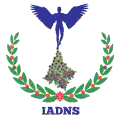REVIEW PAPER
The role of dietary flavonoids for modulation of ATP binding cassette transporter mediated multidrug resistance
1
College of Food Science and Technology, Guangdong Ocean University, Guangdong Provincial Key Laboratory of Aquatic Product Processing and Safety, Guangdong Province Engineering Laboratory for Marine Biological Products, Guangdong Provincial Engineering Technology Research Center of Seafood, Key Laboratory of Advanced Processing of Aquatic Product of Guangdong Higher Education Institution, Zhanjiang 524088, China
Submission date: 2021-10-18
Final revision date: 2021-12-01
Acceptance date: 2021-12-06
Online publication date: 2021-12-31
Publication date: 2022-02-01
Corresponding author
Lei Chen
College of Food Science and Technology, Guangdong Ocean University, Guangdong Provincial Key Laboratory of Aquatic Product Processing and Safety, Guangdong Province Engineering Laboratory for Marine Biological Products, Guangdong Provincial Engineering Technology Research Center of Seafood, Key Laboratory of Advanced Processing of Aquatic Product of Guangdong Higher Education Institution, Zhanjiang 524088, China
College of Food Science and Technology, Guangdong Ocean University, Guangdong Provincial Key Laboratory of Aquatic Product Processing and Safety, Guangdong Province Engineering Laboratory for Marine Biological Products, Guangdong Provincial Engineering Technology Research Center of Seafood, Key Laboratory of Advanced Processing of Aquatic Product of Guangdong Higher Education Institution, Zhanjiang 524088, China
eFood 2021;2(5):234-246
KEYWORDS
TOPICS
ABSTRACT
Flavonoids are widely existing compounds with enormous pharmacological effects from food and medicine. However, the low bioavailability in intestinal absorption and metabolism limits their clinical application. Intestinal efflux ABC (ATP binding cassette) transporters, including P-glycoprotein (P-gp), breast cancer resistance protein (BCRP) and multidrug resistance-associated proteins (MRPs), act as "pumping doors" to regulate the efflux of flavonoids from intestinal epithelial cells into the intestinal cavity or the systemic circulation. The present review describes the critical effect of ABC transporters involved in the efflux of flavonoids which depend on its efflux direction. And the role of flavonoids for modulation of intestinal ABC transporters was emphasized and several examples were given. We summarized that the resistance effect of flavonoid-mediated multidrug on ABC transporters may influence the bioavailability of drugs, bioactive ingredients and/or toxic compounds upon dietary uptake. Meanwhile, flavonoids functionalized as reversing agents of the ABC transporter may be an important mechanism for unexpected food-drug, food-toxin or food-food interactions. The overview also indicates that elucidation of the action and mechanism of the intestinal metabolic enzymes-efflux transporters coupling will lay a foundation for improving the bioavailability of flavonoids in vivo and increasing their clinical efficacy.
We process personal data collected when visiting the website. The function of obtaining information about users and their behavior is carried out by voluntarily entered information in forms and saving cookies in end devices. Data, including cookies, are used to provide services, improve the user experience and to analyze the traffic in accordance with the Privacy policy. Data are also collected and processed by Google Analytics tool (more).
You can change cookies settings in your browser. Restricted use of cookies in the browser configuration may affect some functionalities of the website.
You can change cookies settings in your browser. Restricted use of cookies in the browser configuration may affect some functionalities of the website.



